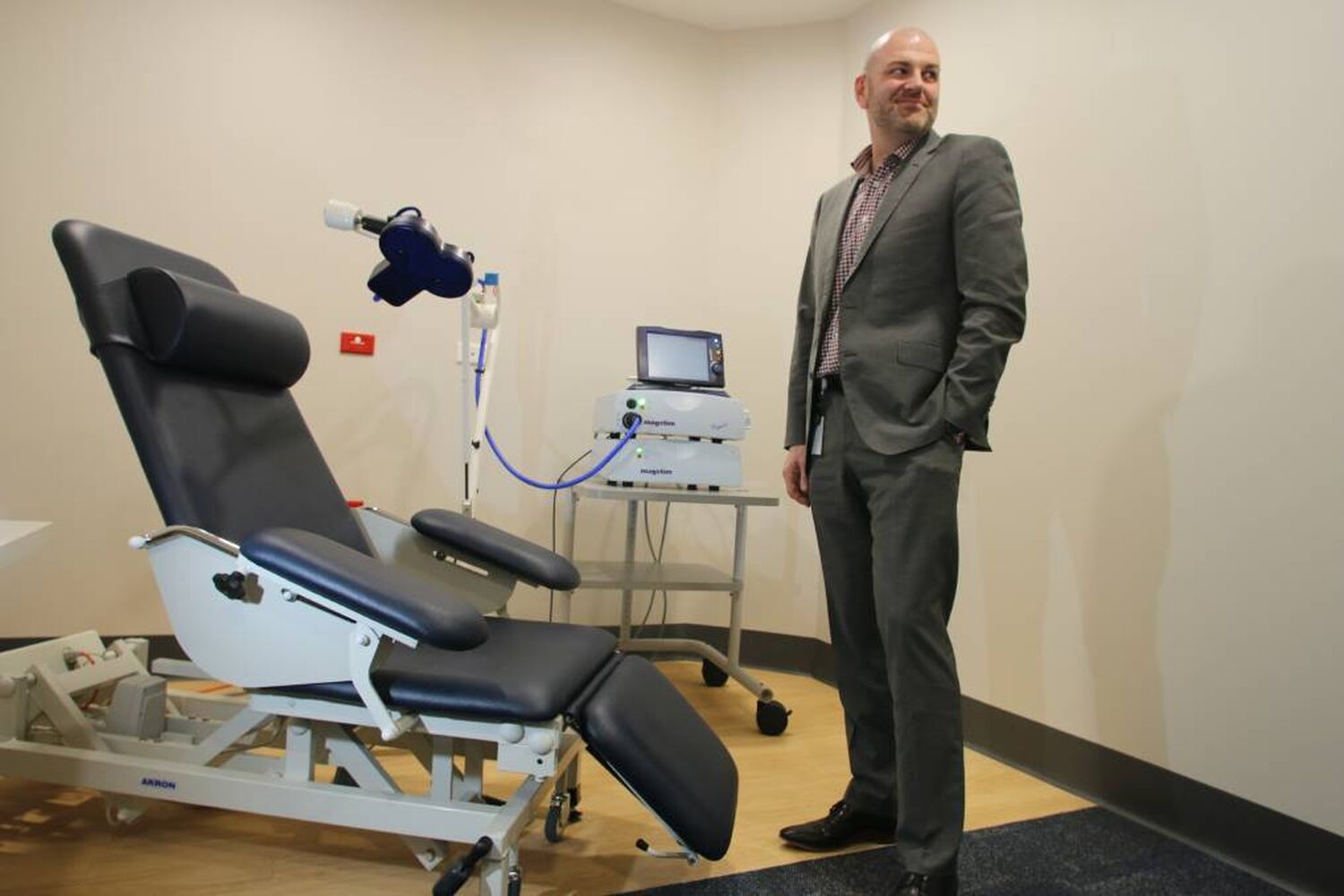Toronto Private offering RTMS for patients with treatment-resistant depression
PEOPLE dealing with treatment-resistant depression now have access at Toronto to a new technology that is producing promising clinical results.
Toronto Private Hospital is offering repetitive transcranial magnetic stimulation (rTMS), a first for the Hunter.
Toronto Private Hospital chief executive officer, Jason Thomas, said the arrival of the new technology at the hospital was a huge win for the area.
“Until now, those suffering with treatment-resistant depression would have to travel to Sydney, or further, to access rTMS,” Mr Thomas said.
“Toronto Private has acquired the rTMS technology to supplement the services already on offer at the Woodlands Mental Health Unit. While we are already offering electroconvulsive therapy (ECT), this therapy is not suitable for those with poor health who may be at a high risk of seizures or may not tolerate an aesthesia.”
Repetitive transcranial magnetic stimulation was a form of brain stimulation therapy used to treat depression and anxiety, he said. The therapy involves using a magnet to target and stimulate certain areas of the brain. The rTMS method is particularly effective for patients who have tried a range of antidepressant medications without success. It is usually recommended only after medication and psychotherapy have failed to work.
RTMS is a non-invasive procedure. Sessions of rTMS typically last anywhere from half an hour to an hour. During rTMS patients sit or recline while an electromagnetic coil is positioned near their head. A psychiatrist places the electromagnetic coil against the forehead near the area of the brain that regulates mood. Pain isn’t usually a side effect of rTMS, Mr Thomas said.
People have, however, described the sensation of the magnetic pulse as uncomfortable.
In their paper The effects of repetitive transcranial magnetic stimulation in the treatment of depression, Paul B Fitzgerald and Zafiris J Daskalakis of the Monash Alfred Psychiatry Research Centre, said the treatment method had been used around the world for 15 years.
“The ‘standard’ form of rTMS clearly appears to have anti-depressant efficacy, and its effects have now been confirmed in several large-scale clinical trials,” they wrote.
Treatment sessions last anywhere from 30 to 60 minutes about five times a week. The treatment duration usually lasts between four and six weeks.
Toronto Private Hospital is currently offering rTMS free of charge to inpatients attending their depression management program. Phone 1800 311 470.
